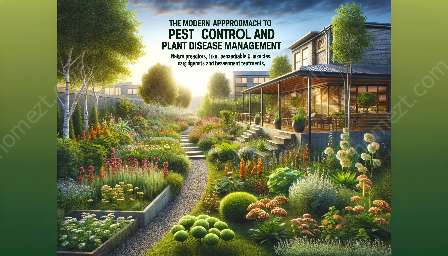Welcome to our comprehensive guide on viral diseases affecting gardens and their prevention. In this article, we will explore the various viral diseases that can impact your garden, discuss the importance of pest control and plant health, and provide practical tips for maintaining a vibrant and thriving garden.
Understanding Viral Diseases in Gardens
Viral diseases are a significant concern for gardeners as they can affect a wide range of plants, including vegetables, fruits, ornamentals, and more. These diseases are caused by various types of viruses that can quickly spread and severely damage plant health and productivity.
Common symptoms of viral diseases in plants include yellowing or mottling of leaves, stunted growth, distorted or discolored fruits, and overall decline in plant vigor. Once a plant is infected with a virus, there are limited treatment options available, making prevention crucial in maintaining a healthy garden.
Types of Viral Diseases
There are numerous viral diseases that can affect garden plants, each with its own set of symptoms and characteristics. Some of the most common viral diseases in gardens include Tomato Mosaic Virus, Cucumber Mosaic Virus, Tobacco Mosaic Virus, and Bean Common Mosaic Virus, among others. Understanding these specific viruses and their impact on plants is essential for effective prevention and management.
Preventing Viral Diseases in Gardens
Prevention is the key to managing viral diseases in gardens. Implementing a few simple strategies can significantly reduce the risk of viral infections and promote a healthy garden environment. Here are some effective prevention methods:
- 1. Sanitation: Keep your garden clean and free from debris, weeds, and any infected plant material. Proper sanitation can help limit the spread of viruses from one plant to another.
- 2. Disease-Resistant Varieties: Planting disease-resistant varieties can provide an added layer of protection against specific viral diseases. Be sure to look for resistant cultivars when selecting plants for your garden.
- 3. Pest Control: Implementing effective pest control measures is crucial for preventing the spread of viral diseases. Regularly inspect your plants for any signs of pests and take appropriate actions to manage their populations.
- 4. Healthy Plant Practices: Promote overall plant health by providing proper nutrition, adequate water, and optimal growing conditions. Healthy plants are better equipped to resist and recover from viral infections.
- 5. Quarantine Infected Plants: If you notice any plants showing symptoms of viral diseases, promptly remove and quarantine them to prevent the spread of infection to other healthy plants.
Integrating Pest Control and Plant Diseases Management
Effective pest control is closely linked to managing plant diseases, including viral infections. Pests such as aphids, thrips, and whiteflies can serve as vectors for transmitting viruses from infected plants to healthy ones. By implementing integrated pest management (IPM) practices, gardeners can reduce the risk of viral diseases and maintain a balanced ecosystem in their garden.
IPM strategies focus on minimizing the use of chemical pesticides and instead emphasize cultural, mechanical, and biological control methods to manage pests. This holistic approach not only helps control pests but also contributes to overall plant health and reduces the likelihood of viral outbreaks.
Tips for a Vibrant Garden
Creating and maintaining a vibrant garden requires a combination of knowledge, dedication, and proactive care. Here are some additional tips for promoting the health and vitality of your garden:
- 1. Regular Monitoring: Keep a close eye on your plants for any signs of disease, pest infestations, or other issues. Early detection allows for prompt intervention and management.
- 2. Proper Planting and Spacing: Ensure that plants are well-spaced and properly positioned to allow for adequate airflow and sunlight exposure, reducing the risk of moisture-related diseases.
- 3. Mulching: Apply organic mulch around plants to maintain soil moisture, suppress weeds, and provide insulation, promoting a healthy growing environment.
- 4. Crop Rotation: Rotate your crops each season to reduce the buildup of pathogens and pests in the soil, promoting better plant health and productivity.
- 5. Educate Yourself: Continuously learn about plant diseases, pest control methods, and best practices for gardening to enhance your skills and knowledge as a gardener.
By incorporating these tips and strategies into your gardening routine, you can create an environment that is less susceptible to viral diseases and other plant-related issues, leading to a flourishing and bountiful garden.



















